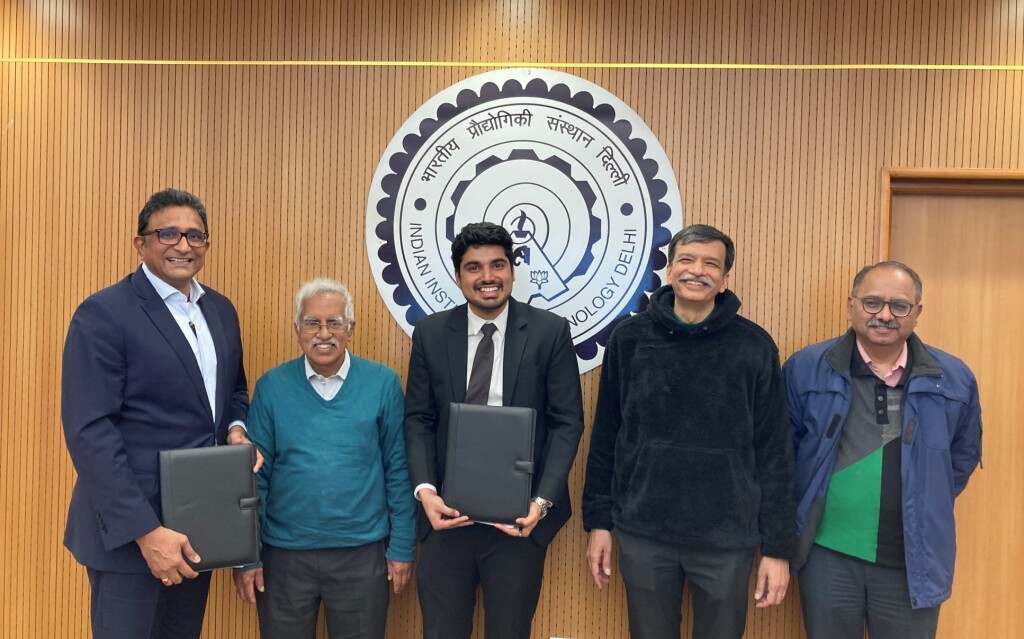New Delhi, India: Technology company Continental, Indian Institute of Technology (IIT) Delhi,and non-profit technology start-up Raised Lines Foundation (RLF) have come together for the deployment of ‘OnBoard’, a technology solution for assisting visually impaired people to board public transport buses. RLF was incubated at IIT Delhi, supported bythe Ministry of Electronics and Information Technology (MeitY), and OnBoarddevelopment was sponsored by the Department of Science & Technology (DST), Govt of India.
Societies around the world recognize the link between the movement of people and goods with economic growth, although traveling for the disabled is still difficult, reducing their life opportunities. With the introduction of OnBoard, visually impaired individuals will have the advantage of easy access to public buses, making their mobility to a larger geographical area a possibility. OnBoard is a technology that is symbolic of inclusivity andfreedom of movement.
“Mobility has to be accessible for all, and technology is the key. Even as we discuss the future of mobility as being connected, autonomous, shared, and electric, often inclusivity is overlooked. Modern technology hascreated a range of possibilities, but there is room for more.As part of our social responsibility, Continental is glad to partner with IIT Delhi and Raised Lines Foundation to support further development and trials of the OnBoard solution”, says Prashanth Doreswamy, President & CEO of Continental India.
“IIT Delhi has been a hotbed of innovation, and we believe in the power of technology to make a difference in the lives of people. Industry academia partnership can further strengthen such R&Dinitiatives.” according to Prof. P.V. Madhusudhan Rao, Mechanical Engineering Department, IIT Delhi. “OnBoard helps take one step forward towards making public transport in India more inclusive,” he added.
OnBoard addresses specific challenges associated with access of public buses by the visually impaired in India.The OnBoard solution helps a visually impaired person independently board a public busby solving two challenges they face, viz. identifyingthe route number of the bus, and identifyingthe location of the door of the bus using an audio cue generated by a speaker on the bus.
The device consists of three separate units – A bus unit that contains a controller and speaker and is connected to the electrical system in the bus; a user device that allows users to query all bus numbers in the vicinity and select the desired bus for audio response; a programming and diagnostic unit at the bus depot that helps program a set of numbers in a bus device from which the driver can select the specific route number the bus is operating on. This device also helps in diagnostics.
Incubated at IIT Delhi, the solution also has completed preliminary testing. The first set of testing was successfully done first in Delhi (5 DIMTS coordinated cluster buses) and in Mumbai (25 BEST buses) and again in Delhi (23 DIMTS coordinated cluster buses). Though these pilot trials have established the effectiveness of the device, a larger-scale deployment is necessary for the launch of this solution, which will benefit thousands of people. The next phase of the project will focus on wider-level testing.
According to Prof. M. Balakrishnan, Honorary Professor, CSE Department, IIT Delhi, and the primary force behind the project, “Mobility is a human right. Society has the responsibility to enable people with disabilities to live independently and participate in all aspects of life. Public-private partnerships can solve several of their existing challenges of sustainable and inclusive mobility, and we are excited to partner with Continental.”
Prof. M. Balakrishnan and Prof. P.V. Madhusudhan Raowere awarded the National Award by Dept of Science & Technology, under the category “scientists/technologists who have developed technologies/assisted devices/tools for the disabled for improving accessibility for the disabled”.
Disclaimer: This media release is auto-generated. The CSR Journal is not responsible for the content.


